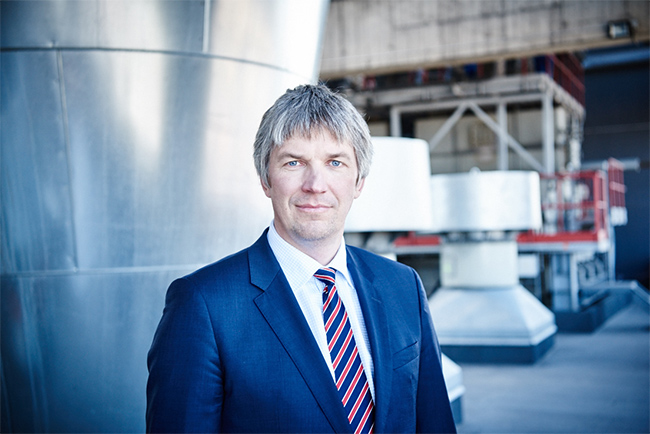
INTRODUCTORY WORD OF THE CHAIRMAN OF THE BOARD
Chairman of the Board of Viru Keemia Grupp
The year 2015 will definitely be remembered by the Estonians habitants for the cheapest oil and electricity prices over the last years, however, the lowest world market price of oil over the past 20 years was the key word for the energy producers. If in the mid-year 50 dollars per barrel seemed to be the last limit where the price could drop, the end of the year proved us wrong. Regardless of many internal and external risks the company was able to fulfill one of the most important priorities of the last year – put an end to the construction works and successfully establish the third shale processing plant based on the Petroter technology. This project comprises the greatest investment of private sector in Estonia over the last years. By taking the Petroter plant as an example the company showed once more that the shale sector in Estonia remains competitive, presents high efficiency and environmental friendliness even in the terms of new climate policy.
Last year the company reached a record in producing industrial oil shale. In total, the company produced 3.5 million tons of shale and 506 000 tons of oil shale products, which constitutes 56% of the entire oil shale production in Estonia. The secure and effective work of Petroter plants which operate above the rated output power and Kiviter plant's stable performance enabled the company to hold the second position among the oil shale producers around the world.
The last ten years have brought along expansive development and new routes for the company. In the newly independent Estonia, we now have our first contemporary mine, three new Petroter plants, limestone plant and much more. The rapid development of the VKG over the last decade has been possible due to the open-minded attitude, sustainable development and social responsibility principles. Constant development is the main characterizer of our company and one of the three values. The available technological solutions elaborated by the Estonian engineers allow us to valorize shale more effectively today than ever before.
However, rapidly changing economy and uneasy geopolitical situation make their own adjustments in the company's plans and development paths. Presently, all the market participants are focused on the investable capital and on optimising and reducing daily costs. Regardless of the difficulties we keep an optimistic view on the future and we are certain that the complex emotional decisions adopted today help us maintain our competitiveness, unique experiences and knowledge in the shale mining, processing and investigating sector.
In difficult times, the smooth partnership between the government and the shale companies is critical. It has become essential to work out in joint collaboration the adequate tax system and legislation based on thorough analyses and research that would consider the global trends and which would support the stable development of the sector in the long run.
The year 2016 is the jubilee year of the shale industry throughout Estonia. Exactly 100 years ago in 1916, Estonia began mining shale and started to investigate its energy potential. Being one of the most substantial natural resources in Estonia, shale mining and the industry ensures employment for tens of thousands of people and gives a significant contribution to the state budget. Therefore I hope that the Estonian shale industry will face several jubilee years in times to come!
VKG Oil
shale oil production
VKG Kaevandused
extraction of oil shale
VKG Energia
production of heat and power
VKG Plokk
production of Roclite building blocks
VKG Diisel
VKG diesel production project
VKG Tsement
VKG cement production project
VKG Transport
railway and vehicle transport services
VKG Elektriehitus
construction and repair of electrical systems
VKG Soojus
heat network service
Viru RMT
assembly, repair and maintenance of industrial equipment
VKG Elektrivõrgud
electric power network service and sales



The group launched its third Petroter-technology oil plant on November 11th. The new plant is another completed project in VKG's investment plan that aims to upgrade local resource and use its potential at a maximum. It was one of the group's main annual goals to complete this project successfully despite hard times in the oil shale sector. The project is one of the largest private sector investments to have been made in the last few years. Three Petroter-technology plants are now operating and have proven the investments to be efficient. The energy efficiency of Petroter oil plants is 81% and environmental protection measures make its ecological footprint far less sizeable than those of plants running on previous technology. Total cost of the investments in the three plants was 220 million euros, of which the Petroter III project cost 84 million euros. The plants also have an important socio-economic role on both regional and state level.
Desulfurization of industrial emissions is a priority in the EU. Reducing the amount of sulphur emissions by three times became possible due to the successfully operating sulphur-trapping units at VKG Energia's territory. VKG Energia is the first in Estonia to use sulphur-trapping units to desulfurize flue gases. The first sulphur-trapping unit has been operating since 2008 and the second unit was launched in 2015. Both units use the Novel Integrated Desulphurisation (NID) technology. The third unit is currently under construction. The unit will be using the Flue-gas Desulfurization (FGD) technology and it will be opened in Autumn 2016. Sulphur-trapping units are an investment in better air quality of the region.
Estonia celebrates 100 years of oil shale mining this year. The success story of oil shale mining began in 1916 with first extractions near Järve commune centre. The oil shale was sent to St. Petersburg for analysis. Planning and construction of the first oil shale quarry near Pavandu tavern started the same year and the first underground mine was established in Kukruse. November 16th can be considered to be the birthday of oil shale, since it was named kukersite on that date.
During the 100-year long period, oil shale has become one the most valuable and strategically important mineral resources of Estonia, and Estonian engineers the best at upgrading it. Oil shale sector is currently the largest industrial sector that employs tens of thousands of people and makes a remarkable contribution in Estonian economy. Estonia's oil shale upgrading skills are highly appreciated in both Estonia and the whole world.
| 2012 | 2013 | 2014 | 2015 | |
|---|---|---|---|---|
| Return on Sales | 215 754 | 220 406 | 195 216 | 166 788 |
| Cost of Goods Sold | 162 110 | 174 599 | -164 175 | -189 159 |
| GROSS PROFIT | 53 644 | 45 807 | 31 041 | -22 371 |
| Marketing Costs | 4 923 | 5 802 | -3 769 | -3 360 |
| Administrative Overhead | 16 137 | 12 224 | -12 985 | -9 109 |
| Other Revenue | 15 611 | 6 915 | 11 084 | 9 973 |
| Other Operating Costs | 7 171 | 4 193 | -2 492 | -1 745 |
| OPERATING PROFIT | 41 023 | 30 503 | 22 880 | -26 612 |
| Financial Income and Costs | -3 230 | -3 974 | -3 101 | -5 269 |
| PROFIT BEFORE INCOME TAX | 37 793 | 26 528 | 19 779 | -31 881 |
| Extraordinary Expenses | ||||
| Income Tax | 436 | 315 | 300 | |
| NET PROFIT FOR THE FISCAL YEAR | 37 357 | 26 213 | 19 779 | -32 181 |
| 2012 | 2013 | 2014 | 2015 | |
|---|---|---|---|---|
| ASSETS | ||||
| Current Assets | 75 949 | 76 556 | 115 403 | 71 086 |
| Fixed Assets | 400 109 | 438 161 | 501 848 | 485 513 |
| TOTAL ASSETS | 476 058 | 514 717 | 617 251 | 556 599 |
| LIABILITIES AND EQUITY CAPITAL | ||||
| Short-Term Liabilities | 88 692 | 67 114 | 91 368 | 75 383 |
| Long-Term Liabilities | 88 480 | 123 338 | 183 261 | 182 724 |
| Total Liabilities | 177 172 | 190 503 | 274 629 | 258 107 |
| Equity Capital | 298 886 | 324 214 | 342 622 | 298 493 |
| TOTAL LIABILITIES AND EQUITY CAPITAL | 476 058 | 514 717 | 617 251 | 556 599 |
In September 2015 the Petroter 3 oil plant was established at full power within one week. This completed one important development phase in the history of the group, which began in July 2009 with the mine construction of VKG. In addition to the Petroter 3 oil plant, VKG also has sufficient power for reprocessing fine shale produced in Ojamaa mine. Such rapid establishing of the Petroter 3 plant and achieving that stable and efficient operation wouldn't have been possible without numerous innovations conducted by the project team compared to the Petroter 1 and Petroter 2 plants.
Within the framework of the project of regenerating gasoline fractions from retort gas, specifying the developed technical solution and profitability calculations took place. In case of realization of the project and favorable oil prices in the world market, regenerating gasoline fractions from gas allows to increase the energy efficiency of oil-shale production and the additional value created in the value chain of valorising oil-shale.
Since the oil shale industry is a so-called weight-losing industry and oil-shale is the raw material of relatively low calorific value, optimizing the logistics of oil-shale, by-products and waste is one of the important opportunities for improving the cost efficiency in the value chain. In 2015 a 1500 m tube conveyor for transporting shale ash from Petroter plants to landfills was set up, which in addition to the cost efficiency of the value chain also significantly reduces the burden on the environment.
In 2015 VKG continued the introducing of the asset management system in the group. In collaboration with research institutions we started compiling and reviewing the mathematical models and optimization algorithms for better solving of the optimization tasks of production in a dynamic environment. Along with introducing the business monitoring software it creates prerequisites for making managerial decisions in order to increase the effectiveness of the necessary information process and the information quality.
In 2016 legislation arising from Industrial Emission Directive was adopted and the European Union's tightened environmental requirements became effective. The environmental investments which have been made over the years were successfully completed and the companies of the group comply with the applicable requirements. VKG investments in environmental protection have always been some of the most substantial ones in the country, constituting an amount of nearly 100 million euros within ten years.
The strategic goal of VKG is to maximally valorize oil-shale in processing to exploit the chemical, physical and energetic potential of it. Product design, development, energy efficiency and maximum deployment of by-products and production residues are the kind of activities which enable to enhance the use of resources and reduce the environmental impact of the oil-shale industry and footprint. In 2014 and 2015, two new Petroter oil plants with the energy efficiency of 81% were established, retort gas boiler and steam turbine in VKG Energia was reconstructed, a new electrical substation was built and the desulphurisation installation and Petroter sewage treatment plant was set up. Total investments in energy efficiency and environmental projects in 2015 were 26 million euros.
New technologies raise production efficiency and enable to obtain maximum amount of products and by-products from oil-shale. As a result of the cooperation between our engineers and subcontractors, new factories based on Petroter-technology were established, which is the best available technology in shale oil production with the energy efficiency of 81%. In 2015 Petroter II reprocessed more than 1 million tons of oil-shale, which allowed to produce over 50% of shale oil, 20% of semi-coke gas and 11% of heat energy from its primary energy. The shale oil plant Petroter III which was completed in September, achieved the planned production capacity in October. Among the operating factories in Estonia the energy efficiency of the Petroter appliances is the highest and the level of produced emissions and waste is the lowest. The cogeneration of energy in VKG Energia allows to use all of the residual heat and retort gas of the technological process, and to lower the footprint of CO2.It is important that these large projects are managed on the basis of uniform standards and that the employees observe and make management decisions by following the essential result indicators, trends and goals reflecting the environmental, resource and energy efficiency.
The rapid development, energy policy and energy efficiency of the group set higher requirements on the management systems. In 2015 VKG Energia implemented the certified energy management system ISO 50001 in addition to the existing management system.One of the environmental priorities of the group is to improve the ambient air quality of the industrial sites. The ambient air modelling that was started some years ago has given inputs for the project of reducing air pollution sources, under which all containers were equipped with cleaning installations in 2015.Also the oil-removal device of VKG Oil container park has been reconstructed, and the monitoring equipment and continuous monitoring systems have been renewed. In addition to the above, one of the priorities of the last and the given year is still to reduce the SO2 emission. The largest environmental investment in 2015 was the third desulphurisation device in VKG Energia with the value of 18.7 million euros.
Some of the more substantial activities in 2015 were promoting recycling economy. The researches were performed and the technology was developed that allows to deposit moistened shale ash in accordance with environmental standards, ensuring the necessary conditions for the establishment of the landfill. This in turn significantly reduces the burden on sewage treatment plants and bodies of water, while saving clean water during deposit action. The new deposit methodology is planned to be implemented in 2016.In addition to that, a new landfill is planned to be built this year which is about to cost 6.1 million euros. In 2015 the former ash landfill of the Põhja thermal power plant of VKG Energia was repaired.
The utilization of by-products and waste of oil-shale mining and oil production increases the resource usage of oil-shale. One of the by-products of oil-shale mining in Ojamaa is gravel. Semi-coke and shale ash which was produced during shale oil production, can be used or re-used as building material. In 2015 VKG reused more than 800 thousand tons of semi-coke and ash, and all the gravel produced from mining in road construction and backfilling. Within the framework of VKG development, researches are performed to increase the use of shale ash for backfilling mining tunnels, for producing building blocks in VKG Plokk and for road construction.
Oil shale mining and shale oil production and power generation from retort gas has become considerably cleaner and more efficient over the years. The state of the environment is improved and the footprint of oil-shale sector is reduced. We have invested in new technologies and large-scale environmental projects. As of today, the challenge is to further increase the production efficiency, recycle waste and reduce air emissions.
We plan to invest about 13.7 million euros in environmental projects this year.
OPEN
DEVOTED
ASPIRED
TO VALUE OIL SHALE - THE MAIN ESTONIAN NATURAL RESOURCE
TO BE THE FLAGSHIP OF THE ESTONIAN OIL SHALE INDUSTRY AND THE LEADER IN DISCOVERING THE OIL SHALE POTENTIAL.
For many years VKG received the oil shale needed for production from Eesti Energia Kaevandused. Since 2012 Eesti Energia Kaevandused no longer covers the entire demand for raw materials of VKG, and the lion’s share of oil shale is supplied by the company’s own Ojamaa mine, which holds 60 mln tons of oil shale. By opening the mine, we have provided over four hundred well-paid jobs.
VKG obtained the mining permits for the Ojamaa mine in 2004. Preparatory works for the opening of the mine began in 2007 and in July 2009 work on the facility was launched. The grand opening of the mine was on 31 January 2013, and it reached its full capacity in the second half of the year.
As the most recently opened in Estonia and one of the most up-to-date oil shale solutions globally, the underground excavation is applied for producing oil shale, which is used when the layer of oil shale is deeper than 30 metres under ground. Only the most up-to-date technologies and the best possible equipment are used in the technological process. The volume of investments into the Ojamaa mine has amounted to 120 mln euro.
During the cross-put works, from August 2010, the Ojamaa mine started to supply fine oil shale for satisfying the needs of the plant Petroter I. In 2011, the fine oil shale supplied by Ojamaa became the only raw material used at the new plant. The Ojamaa mine can supply raw material to three plants simultaneously using the Petroter technology.
Ojamaa will cover the demand of VKG for the raw material needs for approximately the next 16 years. So that the mine would be able to supply both fine stone and crushed stone to the three Petroter plants and four factories operating on the basis of the Kiviter technology, its capacity must be increased up to 3.8 mln tons per year. The relevant application has already been submitted to the Ministry of the Environment. The production capacity of the mine corresponds to the amount limited by excavation permits (which amounts to 2.772 million tons per year at present), but within a very short time it will be possible to increase the capacity for covering the increased needs of oil plants.
The increase in capacity has been largely discussed at the top level of the state government recently. At the beginning of 2015 the Riigikogu Mining Group submitted a proposal for making amendments in the Earth Deposits Act, which would make the excavation rate period-based. This change will allow VKG to excavate the oil shale which has remained unexcavated in the first years of the Ojamaa mine operation.
Of course, this will be a temporary measure, but this solution will still allow VKG to relieve a stressful situation, which has occurred as the result of the distribution of oil shale resources.
It is strategically important for the group to guarantee the oil shale resource for the more distant future. It has been planned to do that by building a common mine for Sonda oil shale mines mining claims, which would have a common opening, technology, and transportation system. The Ministry of the Environment has approved the environmental impact assessment programme. The group is planning to develop this project in cooperation with Kiviõli Keemiatööstus.
The oil shale extracted at the Ojamaa mine is delivered to the production territory of VKG by a unique overhead conveyor, which has been in use since 2012. The conveyor consists of one belt. The length of the structure is 12.4 kilometres and its width is 4 metres.Conveyor is a great example of an environment friendly manufacturing solution. The conveyor produces no emissions and dust and there is no additional load for local roads and no noise. The local community as well as specialists in the field of environmental protection were involved in the process of planning the route of oil shale supply. The habitats and habits of local animals and birds were taken into consideration. Throughout the entire length of the route, special tunnels and bridges for animals have been built, so that the tenants of the wood could cross the conveyor safely.
On the production territory, the raw material is distributed by a powerful distribution system that is located ten metres above the ground. VKG Oil, the flagman of the group, is responsible for oil shale processing. VKG OIL, which includes 3 Petroter-technology plants and 4 Kiviter-technology factories, is responsible for oil shale reprocessing in the group Kiviter factories operate on oil shale rocks, while Petroter plants use fine-grain shale.The final products of both type of technologies are fuel oils for and marine fuel. Heavier shale oil fraction is also used as the raw material in electrode coke production. Oil Shale reprocessing capacity of the company was 3 million tons of oil shale in 2015, of which 506 000 tons of crude oil was produced.
„The new Petroter III oil shale plant is a step ahead in the direction of the modernization of the oil shale sector in Estonia. Using oil shale for the production of oil, we are going to increase the share of energy that is obtained from oil shale. The Estonian oil shale sector will be capable of being successful in the conditions of the European climatic and energy policy, reducing the environmental effect and boosting efficiency. The innovation implemented by the Estonian companies and engineers in the name of the new Petroter III plant will help to achieve this aim“. Kristen Michal, the minister of economic affairs and infrastructure
„We are very pleased and proud to open the third Petroter plant. The successful implementation of the project, in spite of the difficult times in the oil shale sector, has been one of the main targets of the Group in the year 2015. It has been the largest investment into the private sector within recent years in Estonia. The plants that are based on Petroter technology have proved the efficiency of investments in practical terms and the appropriateness of the choices that VKG made some time ago. The energy efficiency of Petroter oil plant is over 82%, and, owing to some environmental measures, the ecological footprint of the Group, compared with the technologies that have been used earlier, will reduce by several times“. Ahti Asmann, Chairman of the Board of Viru Keemia Grupp
The most valuable part of Estonian oil shale is called alkylresorcinols: 5-Methylresorcinol, 2-Methylresorcinol, 5-Methylresorcinol Monohydrate and 2,4-Dimethylresorcinol, all fine chemicals with high reactivity and of high purity.
Oil shale chemicals can be used in a variety of products. Chemicals from Estonian oil shale can be found in dyed textiles, tanned furs, also hair dyes by L’Oréal, Wella ja Schwarzkopf, skincare and sunscreens. They are also used in the manufacturing of Samsung TV screens, also Lexus and Toyota car parts.
Honeyol and rezol, oil shale phenols fractions, are used as adhesive resins in tire, plywood and petroleum industry and as a base in manufacturing dyes and varnishes. The product from the new resin production unit that was opened in 2012 is called „red resin” and it is used in the manufacturing of tires by the best tire manufacturers in the world - Lexus, Goodyear, Pirelli and Bridgestone.
VKG is currently the only company in Estonia to extract valuable fine chemicals from shale oil. The company is capable of producing hundreds of tons of fine chemicals of high purity (over 99%) per year. Price of the fine chemicals can go up to hundreds of euros per kilogram. The largest consumers of Estonian shale oil chemicals are well-known businesses from the EU, Japan and India. Fine chemicals produced in Kohtla-Järve have also been used in Iran and Latin America.
New web page for fine chemicals is located at
www.finechem.eu
VKG Soojus offers heat distribution and sales services. Residual heat generated in the process of processing oil shale is used for heating the service areas. The areas of Kohtla-Järve and Jõhvi are heated through a main heating system which is over 18.5 kilometres long. It was built in 2012. The heating main starts at the VKG Energia production area in Kohtla-Järve and runs through several rural municipalities up to the point of connection to the distribution network at VKG Soojus AS.
VKG Energia is the industrial electricity-generating enterprise with the main goal of providing heat to the nearby districts and producing electricity for VKG and neighbouring enterprises, using the total amount of oil shale gas produced at VKG Oil for that purpose. VKG Energia has got two power stations: the Northern and the Southern stations. Total thermal capacity is 320 MW. After the first turbo generator set was commissioned in August 2015 the electric production capacity has risen to more than 98 MW.
In August of 2015 the expansion of VKG Energia's Northern Thermal Power Station's powerful power generation complex was finished. A new turbine with 27 MW capacity, generator, cooling system, 40 MWA nominal capacity and 110 kV voltage substation were constructed and a boiler with 75 tons of steam per hour nominal capacity was refurbished as a part of the project. Total cost of the complex was 28 million euros.
Together with expanding VKG's production capacity and starting the third Petroter-technology shale oil plant, the new complex is of significant importance. In addition to the shale oil produced at oil plants, other products such as retort gas, steam and heated water is being sent to the power station, producing power, supplying heat for the citys in the area and steam for industrial consumers. The power and heat cogeneration implemented in VKG is tremendously more efficient than direct combustion of the oil shale and its environmental footprint is also much smaller. The project helps to increase energy efficiency and sustainable use of resources in the oil shale industry.
Another remarkable project was the completion of the second sulphur-trapping unit's construction and the unit's opening on 2015. The sulphur-trapping unit removes sulphur from flue gases generated in the course of production of heat and power using the Novel Integrated Desulphurization (NID) technology. In Autumn 2015 the construction of the third unit began on VKG's production territory. The project is planned to be completed by the end of 2016. VKG Energia is the first in Estonia to use a sulphur-trapping unit.
VKG ELEKTRIVÕRGUD OÜ is the second largest power distribution company after Eesti Energia's Elektrilevi.
The main areas of activity of the VKG’s electricity distribution enterprise located in Narva are transferring the electricity through the network and the sale of distribution services and the services connected with the operational management of the electric system of the company. VKG Elektrivõrgud is the only electricity distribution enterprise in its service area. The region of 100 000 residents is being supplied with electricity through the lines of VKG Elektrivõrgud. The company has 4 substations with 110 kV voltage, 8 substations with 35 kV voltage, 358 substations with 6 kV and 10 kV voltages, 413 km of overhead electrical lines and 501 km of electrical cable lines.
In addition, the company also provides the service of designing, building, repairing, using, checking and maintaining electrical installations.
Starting from 2012 the company has been offering different electricity price packages to its customers.
Every year VKG Elektrivõrgud invests considerable amounts of money into the maintenance of the lines, substations and other equipment, which is why the reliability of the network is improving, while the share of electricity losses is diminishing considerably. In 2015 608 thousand euro were invested into developing the network and boosting its reliability. In addition to satisfying the needs of private consumers and smaller companies, the enterprise accomplishes an important mission of supplying large industries located in Narva and Sillamäe with electricity.
Building blocks are produced under the Roclite brand, which is a subsidiary of VKG. Roclite building blocks are produced by autoclave treatment at a high temperature from the mixture of sand, oil shale dust, and water. Roclite is an environmentally friendly material, which does not pollute the environment, saves energy, and provides quality for years to come. The blocks from porous concrete are environmentally friendly and do not emit harmful substances into the environment. In the production process we are following a waste-free principle: we send oil shale dust for recycling. The blocks are sold both in Estonia and for export.
Additional information can be found on the webpage:
www.roclite.eu
Semi-coke gas and generator gas derived from shale oil production are being used as the energy necessary for decarbonization. A modern mixing unit has been constructed to mix and dispense the gases. The next step for VKG lime plant to reach its planned full capacity was taken last year. In 2015 the lime plant manufactured approximately 11 000 tons of lime that all used in the process of binding sulphur compounds in flue gases. Some of the desulfurization residue was used in agriculture. The Agricultural Board confirmed that the product is in compliance with the quality requirements of the Fertilisers Act and the company holds an according certificate.
In the project stage the lime plant was supposed to be an unit that would supply the entire desulfurization complex with lime, including the SDA (Spray Dry Absorbtion) unit which will launch in 2016. The experience from this and previous year has indicated that the lime plant is able to produce good quality lime in such volumes, it will cover the current and future demands of VKG and will present an opportunity to market the lime outside of the group as well. The entire project (sulphur-trapping units and lime plant) follows VKG's manufacturing logic and its goal to upgrade Estonian oil shale at use its organic and mineral potential at the maximum and to preserve other natural resources such as limestone.
The use of the mining residues and processing of oil shale in road construction is still one of the focus projects, into which a lot of time and money resources are being invested. Recently we have carried out a number of tests and some research, and we found the best possible field of application for the two kinds of the most abundant production residues generated in the process of oil shale mining and processing. In road construction, the ash generated in the course of oil shale production as well as the crushed rock obtained in the proccess of mining can be used instead of some concrete elements. VKG is absolutely sure that the use of mine waste in road construction together with the oil shale ash generated at the Ojamaa mine is an environmentally-friendly solution, which is also economically feasible.
The company was born out of the Department of Electrical Construction at Narva Elektrivõrgud AS, that is why VKG Elektrivõrgud is still the biggest customer of the company. The largest share of the turnover of VKG Elektriehitus is still derived from Ida-Virumaa, where the task of the company is to maintain the most eastern mains electricity of Estonia (from Narva to Sillamäe and Vaivara rural municipality) and to support the developments of the VKG group in Kohtla-Järve by providing the know-how. This is why the company has two departments, one in Narva and another one in Kohtla-Järve.
Chairman of the Board Ahti Asmann
Vice Chairman of the Board Meelis Eldermann
Registration number 10490531
Järveküla tee 14
30328 Kohtla-Järve
Phone: +372 334 2700
Fax: +372 337 5044
E-mail: info@vkg.ee
www.vkg.ee
Member of the Board Ervin Küttis
Järveküla tee 14
30328 Kohtla-Järve
Phone: +372 334 2535
Fax: +372 334 2719
E-mail: transport@vkg.ee
Member of the Board Margus Kottise
Järveküla tee 14
30328 Kohtla-Järve
Phone: +372 334 2782
Fax: +372 337 5044
E-mail: vkgkaevandused@vkg.ee
Members of the Board Marek Tull,
Sergei Kulikov
Järveküla tee 14
30328 Kohtla-Järve
Phone: +372 334 2852
Fax: +372 332 7620
E-mail: vkgenergia@vkg.ee
Members of the Board Nikolai Petrovitš,
Priit Pärn
Järveküla tee 14
30328 Kohtla-Järve
Phone: +372 334 2727
Fax: +372 334 2717
E-mail: vkgoil@vkg.ee
Member of the Board Tarmo Tiits
Paul Kerese 11
20309 Narva
Phone: +372 716 6601
Fax: +372 716 6600
E-mail: vkgev@vkg.ee
www.vkgev.ee
Members of the Board Andry Pärnpuu,
Peeter Ilves
Järveküla tee 14
30328 Kohtla-Järve
Phone: +372 334 2573
Fax: +372 334 2545
E-mail: viru.rmt@vkg.ee
www.virurmt.com
Member of the Board Andry Pärnpuu
Paul Kerese 11
20309 Narva
Phone: +372 716 6622
Fax: +372 716 6600
E-mail: elektriehitus@vkg.ee
Member of the Board Aleksandr Šablinski
Ritsika 1
31027 Kohtla-Järve
Phone: +372 715 6444
Fax: +372 715 6400
E-mail: vkgsoojus@vkg.ee
www.vkgsoojus.ee
Member of the Board Jaak Saar
Ahtme mnt 145
31027 Kohtla-Järve
Phone: +372 334 2408
Fax: +372 334 2416
E-mail: info@roclite.eu
www.roclite.eu
Kaupo Kikkas
Janek Laanemäe
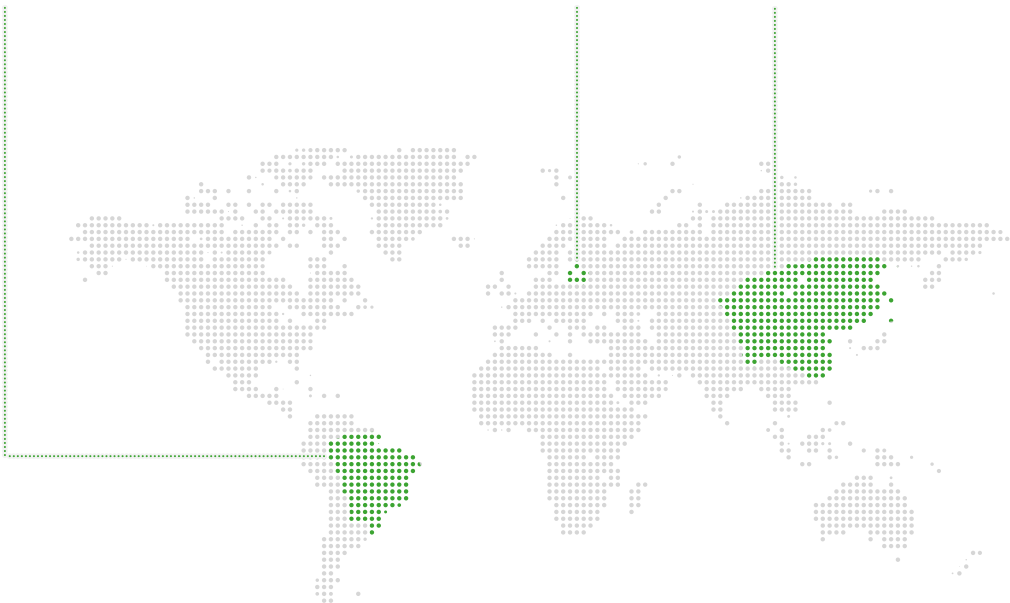
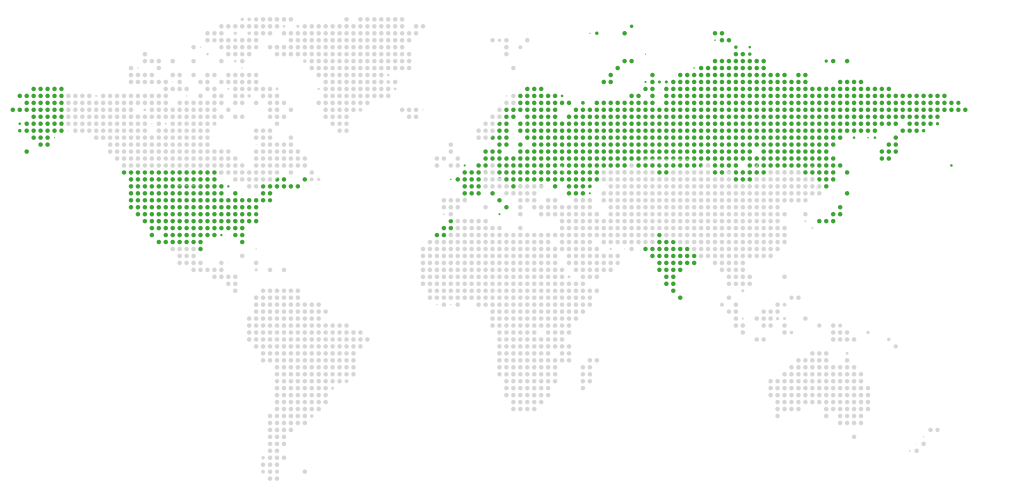
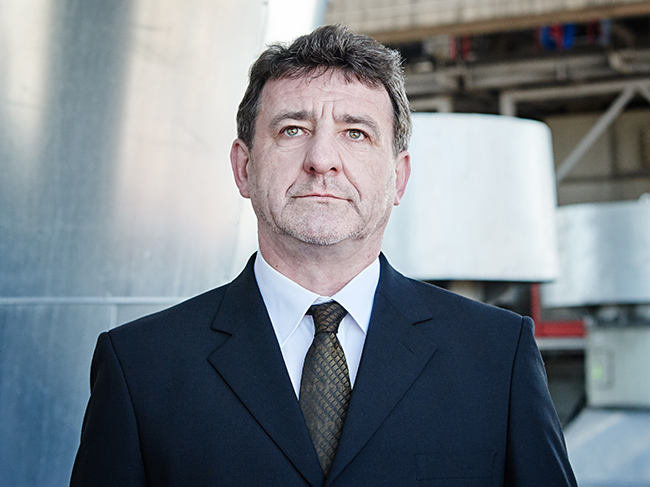
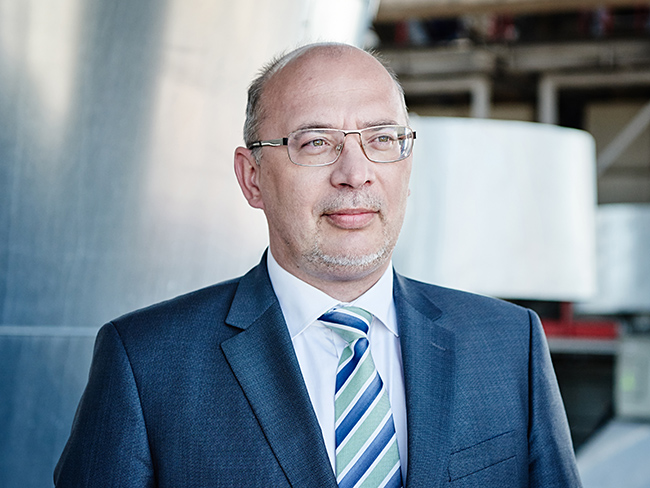
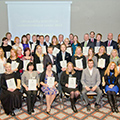
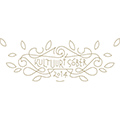
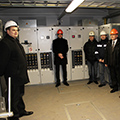
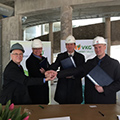
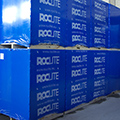
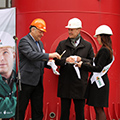
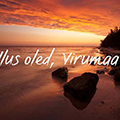

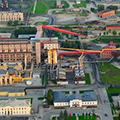
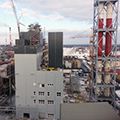
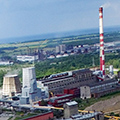
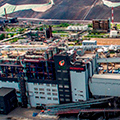
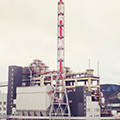
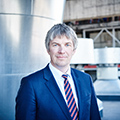
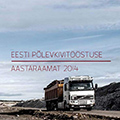
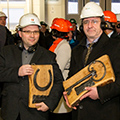

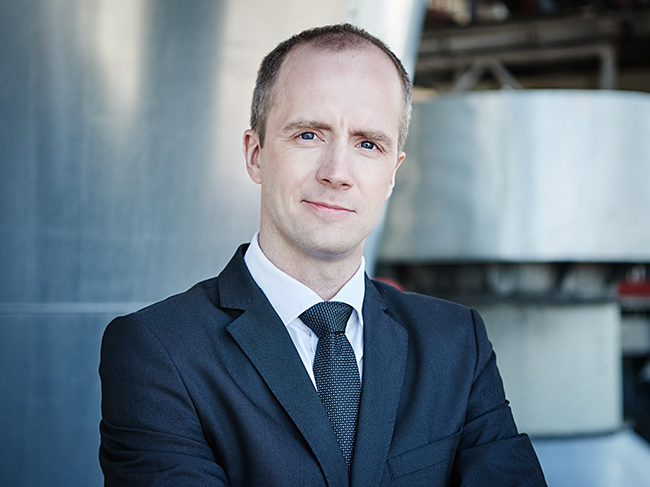
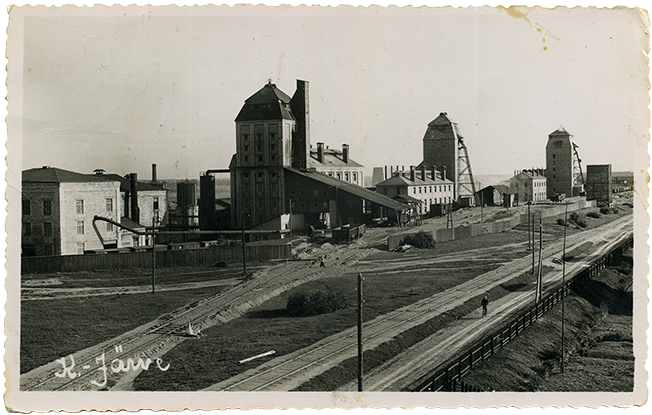
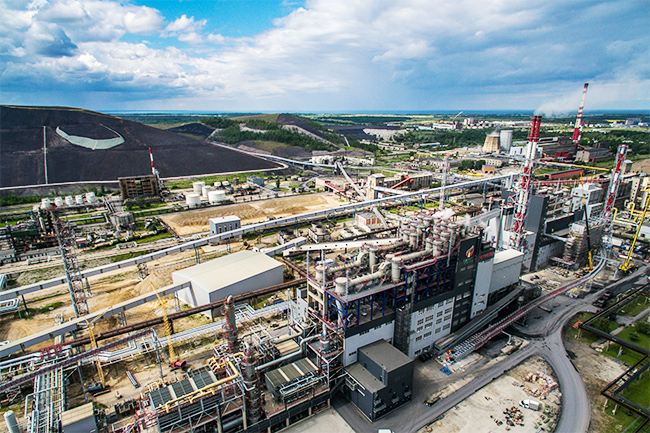
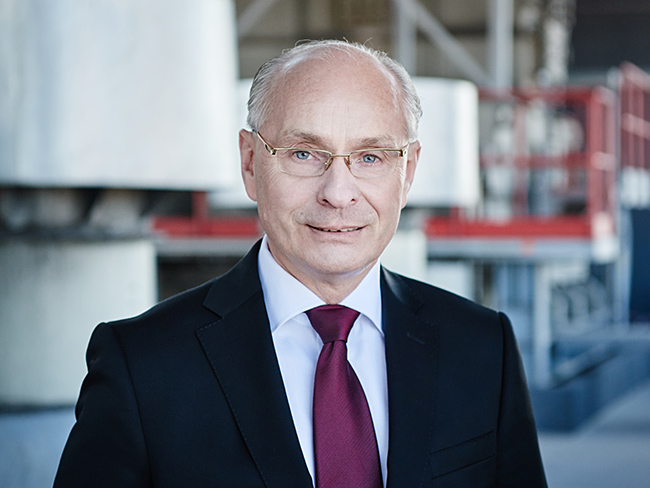
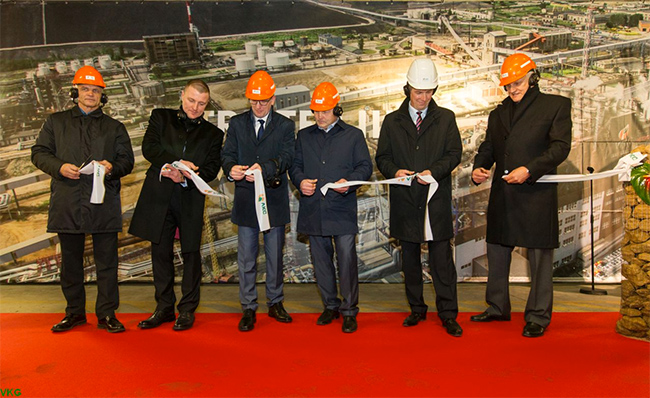
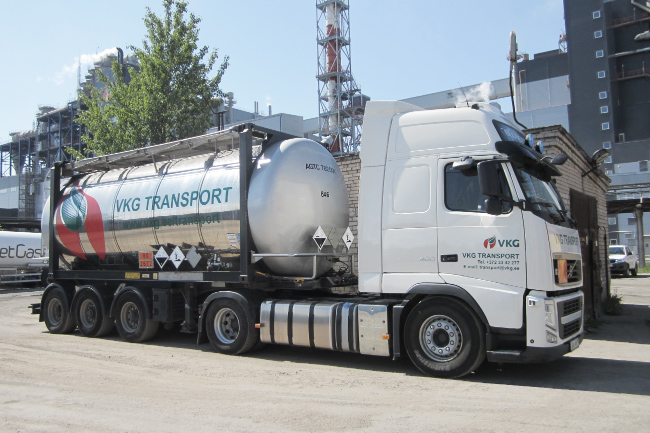
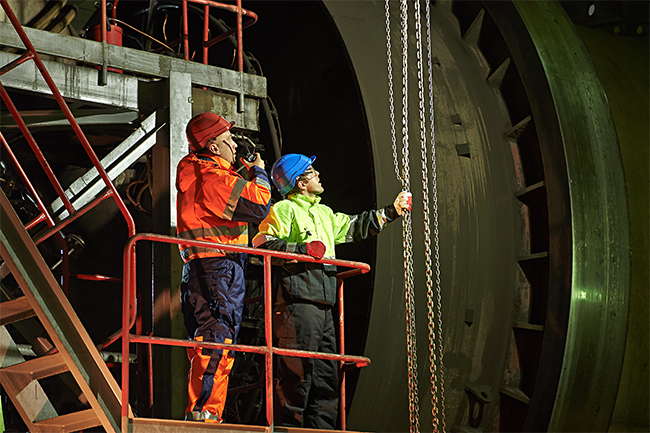
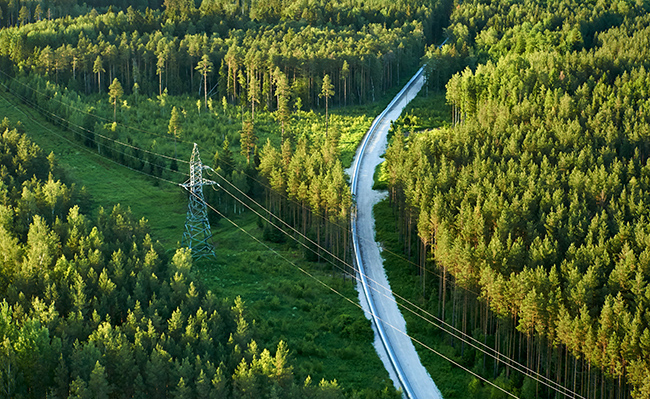
SOCIAL RESPONSIBILITY
The group's social responsibility and sustainable development policy started in 2009. We are proud to be one of the first promoters of the social responsibility concept in Estonia, especially in Virumaa.
In December 2012 we founded the Estonian Responsible Business Union along with nineteen other Estonian businesses. The union's goal is to introduce and promote the concept in Estonian business sector, including on the national level.
THE GENERAL PRIORITIES OF THE GROUP WITHIN THE FRAMEWORK OF RESPONSIBLE ENTREPRENEURSHIP
ENVIRONMENTAL PROTECTION
VKG's priority is to reduce and minimize the environmental impact of industry. The aim of our operations is to show that corporations can be responsible, sustainable and use resources at their maximum potential. The group's largest investments have been directed to environmental functions, making VKG one of the largest environmental investors in the country. VKG has invested around 100 million euros in environmental projects over the years.
OUR EMPLOYEES
People are the most valuable asset of any business. As the region's largest employer our purpose is to offer modern working conditions, pleasant working environment and development opportunities for our employees. We are grateful to our employees who are loyal and value the group as their employer. Employees of the group are engaged in charity and voluntary work. There is a trade union at the group and collective agreements have been signed.
OUR PLACE OF OPERATION – VIRUMAA
VKG's priority is to support Virumaa and the activities of local organizations, people and societies that benefit the community. The group pays attention to the region's development, keeping close touch with local authorities and citizens. VKG supports sports, culture and education initiatives.
VKG HAS ALSO STARTED SEVERAL OF OUR OWN INITIATIVES TO PROMOTE LOCAL LIFE
PHOTO CONTEST “YOU ARE BEAUTIFUL, VIRUMAA!”
Photo book “You are beautiful, Virumaa!” was published in 2015. The book contains some of the best contest photos from previous years. Pages of the book also display quotations on beautiful Virumaa by politicians, entrepreneurs and cultural figures. This is the first photo book of the region.ENGAGING STUDENTS INTO THE HISTORICAL BATTLE OF FIVE SCHOOLS
www.vkg.ee/est/sotsiaalne-vastutus/vkg-algatused/viie-kooli-voistlusIn cooperation with Hugo Treffner, Miina Härma, Nõo and Tartu Tamme gymnasiums and Jakobson school.
One of the values of the group is openness. Openness to new knowledge, to the region and it's problems, tasks and changes
With that principle in mind we have been making the use of our resources and environmental information public for the last six years according to the Global Reporting Initiative's guideline GRI G3.
VKG is an important employer and partner in the region VKG's production territory is located in the vicinity of Kohtla-Järve city. We pay great attention to communication with the locals and keeping them informed of the happenings at the group. To ensure communication, meetings with representatives of the community are held on a regular basis. The group's future development plans and environmental matters are discussed at the meetings. On a regular basis the group holds the so-called Open Doors Day, during which everyone can visit the production territory of VKG and to see with their own eyes how the modern industrial processes are running. We also offer an opportunity to arrange visits and excursions to our facilities to the students from comprehensive schools.
The employees of the group take active part in charity and volunteer work. The group holds topic-based donation campaigns, tree-planting events and workshops, and supports orphanages in the district.
VKG HAS BEEN THE MAIN SPONSOR OF THE ESTONIAN WRESTLING FEDERATION SINCE 2005
VKG’s shareholders Priit Piilmann and Elar Sarapuu have consistently supported the Estonian Wrestling Federation and the Estonian wrestling team’s preparations for the championships and Olympic Games.
Priit Piilmann is the president of the Wrestling Federation since 2012.